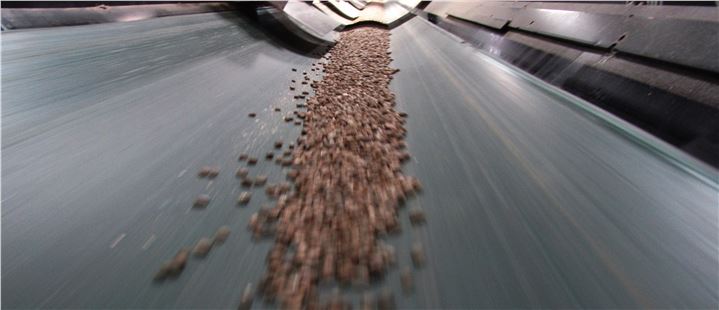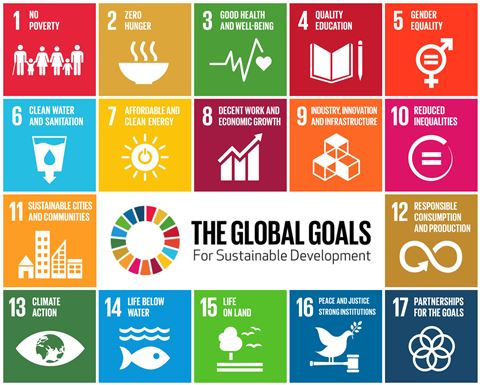Kim Elena Ionescu on Sustainability in Coffee

Another instalment of the Toby's Estate 'Knowledge Talks' by the Specialty Coffee Association's Chief Sustainability Officer, Kim Elena Ionescu, proved both sobering and heartening at once. The path to sustainability won't be easy, but as an industry our willingness to innovate and collaborate will keep us in good stead.
It sometimes seems like the amount of murky uncertainty surrounding sustainability dialogues is rising as quickly as the sea levels they’re trying to impede.
The good news is though, that ‘sustainability’ is a phrase that most consumers are much more familiar with, comfortable with, and more to the point, interested in, than they were ten years ago. Back then, Al Gore’s An Inconvenient Truth was still fresh on the shelves of Blockbuster’s still-flourishing stores, ‘Earth Hour’ was brand new, and Tesla was scrambling through various campaigns for investors. That sustainability was a necessity wasn’t yet popularly-held belief. Gore was fielding multiple critical accusations of fear-mongering from fellow politicians and even some academics, and respected auto-industry publication The Truth About Cars was predicting the likelihood of Tesla’s imminent demise.
A decade on, and ‘sustainability’ is a popular topic, but how to be sustainable is still a tricky area for much of the wider population. In the urgent din and clamour of the various stakeholders decrying where to begin, the crossed messages can become incoherent and confusing, requiring an individual to dedicate considerable effort and energy into finding a satisfying consensus for themselves.
Thankfully, the recent consolidation of the Specialty Coffee Associations of Europe and America represents for the broader coffee industry a flash of fresh, earnest hope for the precious crop currently being assailed on all sides by threats to its not-so-far-off future. ‘Surely the unification means funds might be co-ordinated and put to even better use than before?’ is a tentative thought not far from our minds here at Bennetts.
This week the Australian coffee community were provided with a fantastic opportunity, thanks to the Toby’s Estate-hosted ‘Knowledge Talks’ series, to hear from the person who is best able to answer such questions; the Specialty Coffee Association’s Chief Sustainability Officer, Kim Elena Ionescu.
It seems fitting that the Melbourne Seminar (there were also Sydney and Brisbane sessions) lands on International Women’s Day, since as Kim explains, Gender Equality is one of seventeen categories that the United Nations outlined in their Sustainable Development Goals initiative, released in 2015.
Revealing seventeen different categories of sustainability is not, perhaps, a fabulous way to quickly endear already-confounded consumers. They include but are not limited to ‘Quality Education’, ‘Clean Water and Sanitation’, ‘Peace and Justice- Strong Institutions’, and ‘Decent Work and Economic Growth’. Then again, what should we expect? Kim’s presentation, it turns out, is titled ‘Sustainability is not for the faint of Heart’.

The Sustainable Development Goals, as outlined and adopted in September 2015.
“No one’s going to get that excited about sustainability,” she acknowledged; “This stuff is important, but it’s not exciting.” Important seems an understatement here; according to the Brundtland Report which Kim cited, "Sustainable development is development that meets the needs of the present without compromising the ability of future generations to meet their own needs”.
Kim’s theory is that to fix these problems we will have to innovate; to find new ways of doing things. But if we fall into the trap of thinking of the problem as a whole, it becomes overwhelming and intimidating. The key will be, she argues, to “start thinking about them as individual initiatives” and “coming up with new ways of thinking about old problems…we’re not going to get where we want to be with the same sort of thinking that got us here”. That’s when, she enthused, “these things can become exciting”, citing Tesla as a great example of rethinking in new ways; “For Elon Musk, it’s not about doing cars better, it’s about rethinking transportation. What do we need?”. Blockbuster didn’t die of old age – Netflix innovated it into an early grave.
She advocates that we need to seek holistic solutions that we can apply ‘in-process’ – that is, be ready to work them in gradually rather than stop everything to introduce them. It’s also essential we ensure that they aren’t the type of fix that creates new problems as quickly as they remove them. To do this, there needs to be a combination of research and groundwork, then analysis and reframing. Kim particularly highlighted the potential for sustainable innovation in the many stages before coffee is roasted;
“For all the time and excitement we have for new brewing technologies or new grinding methods, we’ve invested remarkably little in other stages of the supply chain that achieve at least as much in making coffee taste better…Maybe the area that is most ripe for rethinking and investment is in new technologies for picking coffee”.
Kim’s presentation stressed was that there is no easy or quick solution to the need for sustainability, and her answers for the many audience questions posed afterword only reinforced that. For every query posed, a response (generally very eloquently and thoughtfully phrased, with buckets of personal experience and research to back it up) was returned highlighting the inevitable multitude shades of grey the issue presented.
For example, picking by hand, Kim explained, for all the romance of the wonderful story - that every single cherry is hand selected in order to reach your cup - is incredibly inefficient. There is an enormous gulf between the paradigm where the painstaking collaborative labour of a community is required to bring in the harvest by hand, and the only common alternative; a single worker driving a machine through a field, shaking cherries to the ground regardless of ripeness. How to pay a large-enough workforce to complete a harvest in time, while paying them sufficiently high wages to tempt them away from the glimmering appeal of one of the newly-available city jobs, bt also to ensure that the product is still economically viable, as well as to protect those who need the work; all of these issues need careful consideration and balance.
No matter what, establishing effective sustainability practices will require work, investment, time, patience, and teamwork. As Kim said, by taking the Sustainable Development Goals as individual initiatives, we as an industry have the power to make significant progress; “I cannot imagine one of these categories that we cannot impact positively by making the coffee industry more sustainable. The same may be said for the opposite if we don’t act,”.
It will take being open-minded about changing our ways and seeking potentially drastically different methods throughout the supply chain. And it will take good leadership and clarity, so that the not-insignificant energies and motivations of the collective coffee industry can be orchestrated into a unified movement.
We would like to thank Toby’s Estate for hosting such a fantastic event. All ticket proceeds from the ‘Knowledge Talks’ series to the Las Nubes Daycare Centre in the coffee growing community of Acatenango, Guatemala, which provides care for over 40 children from the most vulnerable families in this coffee growing region. To join the Toby’s Estate team in supporting this cause, click here, or follow them on Social Media for tips on the next seminar.


